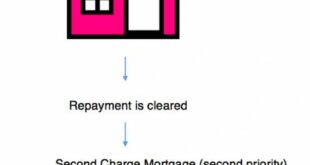Contents
Understanding Second Charge Mortgages
A second-charge mortgage, a secured loan, allows homeowners to access funds by using their property as collateral. While it may not be as well-known as first-charge mortgages, it can be a valuable financial tool for those who need to borrow money for various purposes, including home improvements, debt consolidation, or other significant expenses. In this post, we’ll delve into the world of second-charge mortgages and explore how they work, when they are helpful, and the benefits and drawbacks they offer.
How Second Charge Mortgages Differ from First Charge Mortgages
One of the primary distinctions between second-charge mortgages and first-charge mortgages is their position in the hierarchy of debt on your property. A first-charge mortgage takes precedence over all other debts secured by your property, including a second-charge mortgage. In case of default, the first charge lender is the first to receive payment from the property sale. This means that second-charge mortgages are riskier for lenders, so they often come with higher interest rates.
When to Consider a Second Charge Mortgage
Before considering a second-charge mortgage, evaluating your specific financial situation and needs is essential. Here are some cases where a second charge mortgage might be a suitable option:
- Home Improvements: If you want to invest in your property, a second-charge mortgage can provide the necessary funds for renovations, extensions, or other home improvements.
- Debt Consolidation: If you have multiple high-interest debts, such as credit card debts or personal loans, you can use a second-charge mortgage to consolidate these debts into a single, more manageable monthly payment.
- Irregular Income: For individuals with irregular income or self-employed individuals who may not qualify for a traditional mortgage, a second-charge mortgage can offer a flexible borrowing solution.
-
 A Comprehensive Guide for Home Buyers
A Comprehensive Guide for Home Buyers
The Pros and Cons of Second Charge Mortgages
Like any financial product, second-charge mortgages have their advantages and disadvantages. It’s crucial to understand both before deciding whether this option is right for you.
Pros:
* Lower Interest Rates: Second-charge mortgages often have lower interest rates than unsecured loans, making them a cost-effective borrowing option.
* Flexible Repayment Terms: You can choose from various repayment terms, making it easier to tailor the loan to your financial situation.
Cons:
* Higher Interest Rates than First-Charge Mortgages: Second-charge mortgages typically have higher interest rates than first-charge mortgages, which can lead to higher long–term costs.
* fees: There may be fees associated with setting up a second charge mortgage, including arrangement fees, valuation fees, and legal fees.

The Application Process and Eligibility
To apply for a second charge mortgage, you’ll need to go through a similar process to that of a first charge mortgage. Lenders will assess your eligibility based on factors such as your credit score, income, and the equity you have in your property. The application process typically involves:
2. Valuation: A professional valuer will assess the current value of your property.
3. Legal Process: The legal aspects of the mortgage will be handled, including documentation and contracts.
4. Approval: Once approved, you’ll receive the funds, and the second charge mortgage will be registered against your property.
In conclusion, second-charge mortgages can be a valuable financial tool for homeowners seeking to access funds for specific purposes. However, it’s crucial to carefully consider your circumstances and weigh the benefits and drawbacks before making this financial decision. If you’re uncertain, it’s advisable to consult with a financial advisor or mortgage specialist to ensure you make an informed choice regarding a second-charge mortgage.
Unlocking the Potential: Understanding Second Charge Mortgages
What is a Second Charge Mortgage?
- Explain the concept of a second-charge mortgage.
- Differentiate it from a first-charge mortgage.
- Highlight situations where a second charge mortgage may be helpful.
The Benefits of Second Charge Mortgages
- Discuss the advantages of opting for a second-charge mortgage.
- Explore scenarios where homeowners can leverage this type of financing.
- Emphasize flexibility and lower interest rates compared to personal loans.
Eligibility and Application Process
- Detail the eligibility criteria for second-charge mortgages.
- Describe the step-by-step application process.
- Mention the documentation and credit requirements.
Risks and Considerations
- Identify potential risks associated with second-charge mortgages.
- Discuss the consequences of defaulting on payments.
- Advise readers on how to make informed decisions and mitigate risks.

When Should You Consider a Second Charge Mortgage?
- Offer guidance on when a second charge mortgage is a suitable financial option.
- Provide real-life examples and case studies.
- Summarize key takeaways and recommendations.
Remember to research and provide up-to-date information for your readers, including current interest rates, regulations, and market trends. This will ensure that your content is informative and relevant to your audience.
 Ahammed World Afffaires
Ahammed World Afffaires


